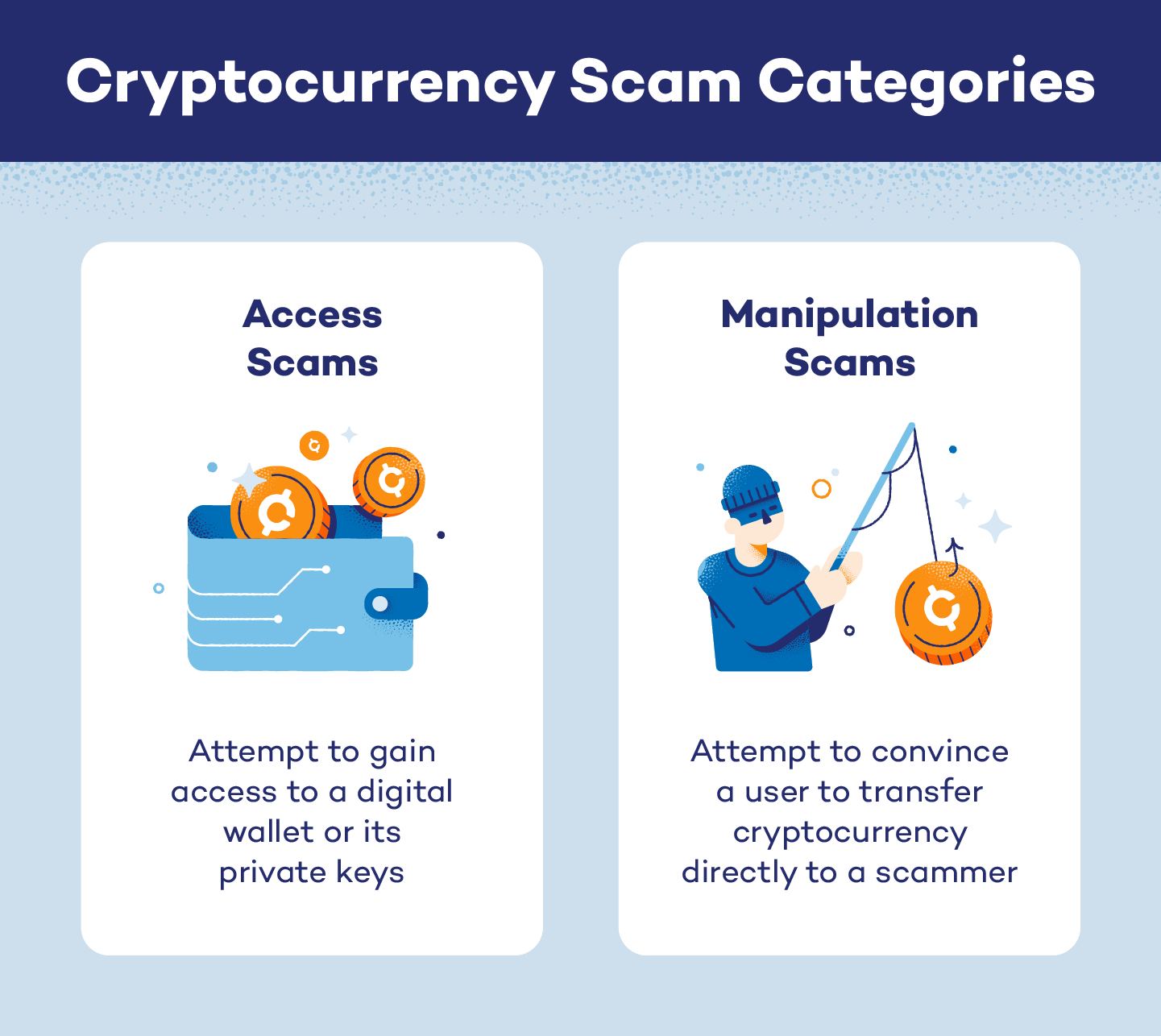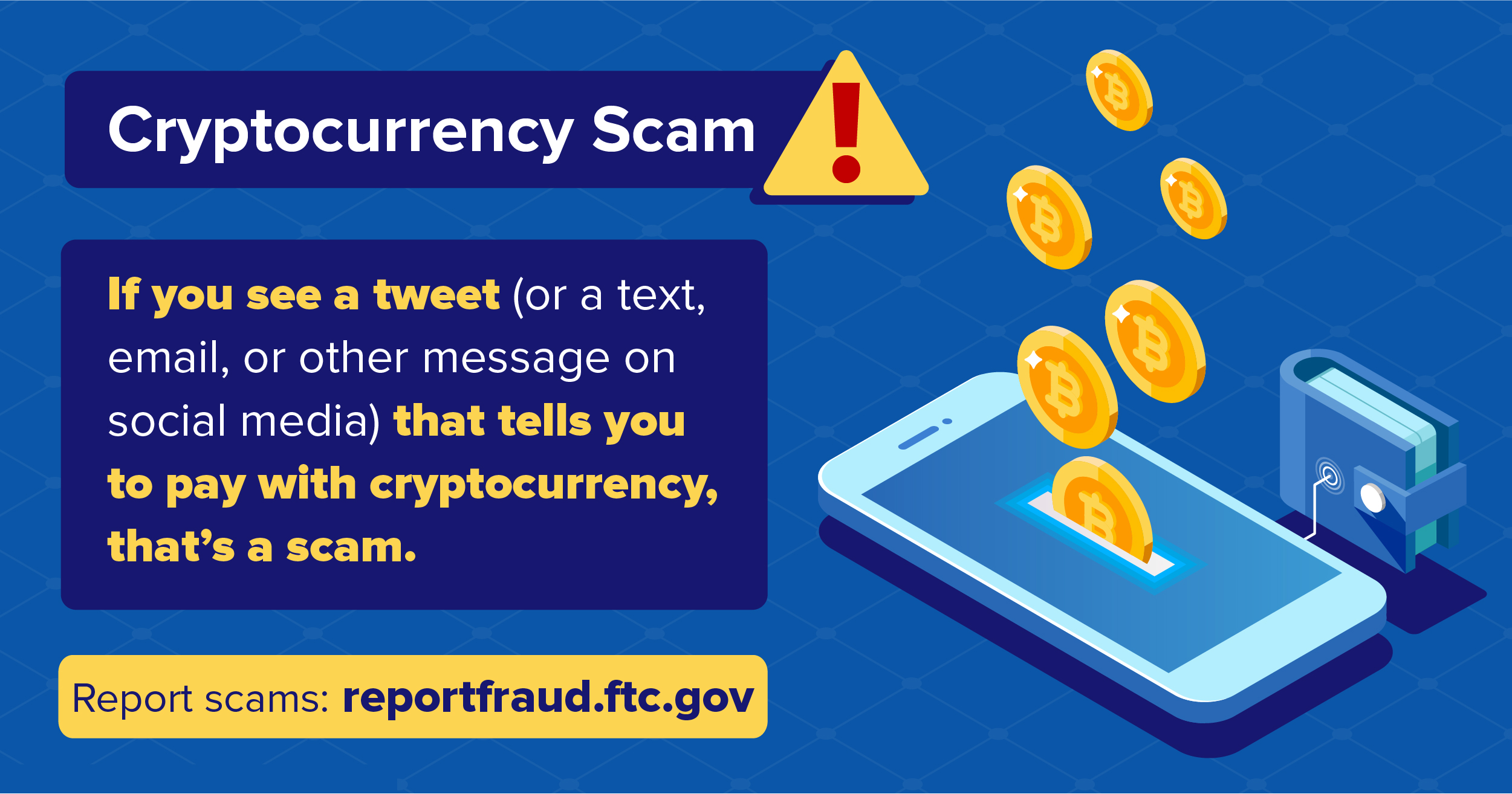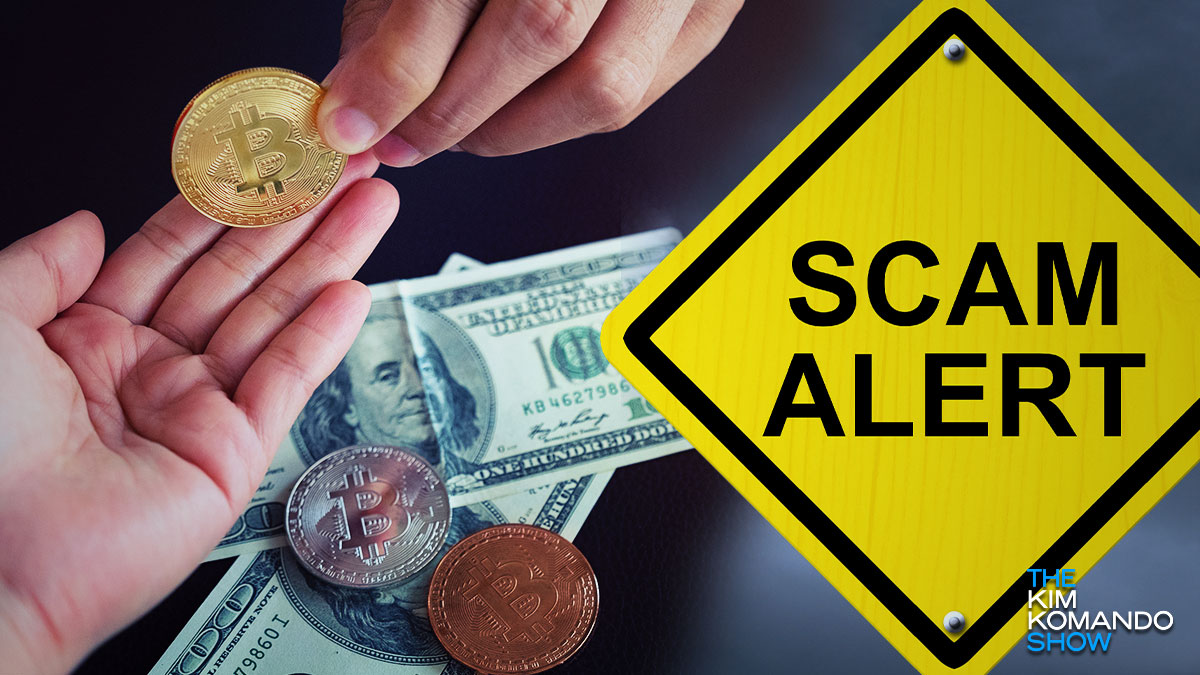Cryptocurrency Scams: A Comprehensive Guide to Protect Your Digital Assets
Cryptocurrency scams have emerged as a significant threat in the digital realm, posing risks to individuals and the industry alike. This comprehensive guide delves into the intricacies of these scams, empowering readers with the knowledge to identify, avoid, and report fraudulent activities, ensuring the security of their digital assets.
From phishing scams to pump-and-dump schemes, this guide unveils the tactics employed by scammers, providing valuable insights into their modus operandi. Additionally, it explores the regulatory landscape and international efforts aimed at combating these illicit practices.
Cryptocurrency Scams: An Overview

Cryptocurrency scams are fraudulent schemes that aim to deceive individuals into investing in or transferring cryptocurrency to illegitimate entities. These scams often involve promises of high returns or exclusive access to new cryptocurrencies.
Cryptocurrency scams can take various forms, including phishing attacks, pyramid schemes, and fake cryptocurrency exchanges. Phishing attacks involve sending emails or messages that appear to come from legitimate sources, such as cryptocurrency exchanges or investment firms, to trick individuals into providing their personal information or cryptocurrency.
Types of Cryptocurrency Scams
Cryptocurrency scams can be categorized into several types:
- Phishing scams: These scams involve sending emails or messages that appear to come from legitimate sources, such as cryptocurrency exchanges or investment firms, to trick individuals into providing their personal information or cryptocurrency.
- Pyramid schemes: These scams involve recruiting new investors who pay into the scheme, with the promise of high returns generated from the recruitment of additional investors. However, these schemes often collapse when the recruitment of new investors slows down.
- Fake cryptocurrency exchanges: These scams involve creating fake websites or mobile applications that mimic legitimate cryptocurrency exchanges. Individuals who use these fake exchanges may lose their cryptocurrency when they attempt to withdraw their funds.
- Rug pulls: These scams involve creating a new cryptocurrency and then abandoning the project, leaving investors with worthless tokens.
- Ponzi schemes: These scams involve paying early investors with funds from new investors, creating the illusion of high returns. However, these schemes eventually collapse when the flow of new investors slows down.
Impact of Cryptocurrency Scams
Cryptocurrency scams have a significant impact on individuals and the industry as a whole.
- Financial losses: Individuals who fall victim to cryptocurrency scams may lose significant amounts of money.
- Damage to reputation: Cryptocurrency scams can damage the reputation of the cryptocurrency industry and make it more difficult for legitimate businesses to operate.
- Reduced trust: Cryptocurrency scams can reduce trust in the cryptocurrency industry and make individuals less likely to invest in or use cryptocurrencies.
Common Cryptocurrency Scams

Cryptocurrency scams have become increasingly prevalent as the digital asset market continues to grow. These scams can take various forms, and it is crucial for users to be aware of them to protect their investments.
Phishing Scams
Phishing scams are one of the most common types of cryptocurrency scams. These scams involve sending fraudulent emails or text messages that appear to come from legitimate sources, such as cryptocurrency exchanges or wallet providers. The messages typically contain links that redirect users to fake websites that look identical to the real ones.
Once users enter their login credentials or private keys on these fake websites, the scammers gain access to their accounts and steal their funds.
Pump-and-Dump Schemes
Pump-and-dump schemes are another common type of cryptocurrency scam. These schemes involve artificially inflating the price of a cryptocurrency through coordinated buying and promoting it on social media or other online platforms. Once the price has been inflated, the scammers sell their holdings, causing the price to crash and leaving other investors with worthless coins.
Investment Scams
Investment scams are another type of cryptocurrency scam that involves promising high returns on investments in new or unknown cryptocurrencies. These scams often target inexperienced investors who are lured by the promise of quick and easy profits. The scammers may create fake websites or whitepapers to promote their projects and convince investors to buy their coins.
However, these projects often have no real value and are designed to steal investors’ funds.
To avoid falling victim to these scams, it is important for cryptocurrency users to be vigilant and take the following precautions:
- Never click on links in emails or text messages from unknown senders.
- Always verify the authenticity of websites before entering any sensitive information.
- Research any cryptocurrency project thoroughly before investing.
- Only invest what you can afford to lose.
- Store your cryptocurrency in a secure wallet.
Identifying and Avoiding Cryptocurrency Scams

With the rise of cryptocurrency, fraudulent websites and apps have emerged to exploit unsuspecting investors. Identifying and avoiding these scams is crucial to protect your personal information and digital assets.
To verify the legitimacy of cryptocurrency exchanges and wallets, consider the following tips:
Verifying Cryptocurrency Exchanges and Wallets
- Check for regulatory compliance:Ensure that the exchange or wallet is registered with relevant financial authorities and adheres to industry standards.
- Read reviews and testimonials:Gather insights from reputable sources and online communities to assess the platform’s reputation and trustworthiness.
- Examine security measures:Verify the exchange or wallet’s security protocols, including encryption, two-factor authentication, and cold storage practices.
- Beware of hidden fees:Understand the fee structure of the platform before committing to transactions to avoid unexpected charges.
- Consider customer support:Evaluate the quality and responsiveness of the platform’s customer support to ensure prompt assistance in case of issues.
Protecting Personal Information and Digital Assets
- Use strong passwords:Create complex and unique passwords for all cryptocurrency accounts and avoid reusing them across multiple platforms.
- Enable two-factor authentication:Implement an additional layer of security by requiring a code sent to your phone or email for logins and transactions.
- Be cautious of phishing scams:Avoid clicking on suspicious links or opening attachments from unknown senders, as they may contain malware or attempt to steal your personal information.
- Store cryptocurrency securely:Use a hardware wallet or a reputable third-party custodian to safeguard your digital assets from unauthorized access.
- Educate yourself:Stay informed about common cryptocurrency scams and best practices to protect your investments.
Reporting and Preventing Cryptocurrency Scams
Reporting cryptocurrency scams is crucial to protect yourself and others from financial losses and safeguard the integrity of the cryptocurrency ecosystem. By reporting these incidents, you help law enforcement and regulatory agencies investigate and prosecute perpetrators, recover stolen funds, and prevent future scams.
Filing a Complaint
To file a complaint about a cryptocurrency scam, contact your local law enforcement agency and the relevant regulatory body in your jurisdiction. Provide as much information as possible, including details about the scam, the individuals or entities involved, and any financial losses incurred.
Reporting Resources
Several organizations and platforms offer resources for reporting cryptocurrency scams and seeking support. These include:
- The Federal Trade Commission (FTC): https://reportfraud.ftc.gov/#/
- The Securities and Exchange Commission (SEC): https://www.sec.gov/tcr
- The Commodity Futures Trading Commission (CFTC): https://www.cftc.gov/complaint
- Cryptocurrency exchanges: Many exchanges have dedicated reporting mechanisms for suspicious activity and scams.
By reporting cryptocurrency scams, you contribute to the fight against fraud and protect the cryptocurrency community. Your actions can help bring perpetrators to justice, recover stolen funds, and prevent others from falling victim to these schemes.
Regulating Cryptocurrency Scams
Cryptocurrency scams have become a growing concern for regulators worldwide. The decentralized nature of cryptocurrencies makes them difficult to regulate, and scammers have taken advantage of this to perpetrate a wide range of fraudulent schemes.In response, governments and international organizations are taking steps to regulate cryptocurrency exchanges and other entities involved in the cryptocurrency ecosystem.
The goal of these regulations is to protect investors from fraud and abuse, and to ensure that cryptocurrency markets are fair and transparent.
Challenges and Opportunities for Regulating Cryptocurrency Exchanges
Regulating cryptocurrency exchanges is a complex challenge. Exchanges are often located in different jurisdictions, and they may operate using different technologies and business models. This makes it difficult for regulators to develop a consistent approach to regulation.However, there are also a number of opportunities for regulating cryptocurrency exchanges.
For example, regulators can require exchanges to register with a central authority, and they can impose requirements on exchanges to ensure that they are operating in a safe and sound manner. Regulators can also work with exchanges to develop new technologies and practices that can help to prevent fraud and abuse.
International Efforts to Combat Cryptocurrency Scams
In addition to national efforts, there are also a number of international efforts to combat cryptocurrency scams. The Financial Action Task Force (FATF) has issued a number of guidelines for regulating cryptocurrency exchanges, and the International Organization of Securities Commissions (IOSCO) has established a working group on crypto-assets.
These organizations are working to develop a coordinated approach to regulating cryptocurrency markets, and they are sharing information and best practices with each other.
Conclusion

Understanding cryptocurrency scams is crucial for navigating the digital landscape safely. This guide has equipped readers with the knowledge and tools to protect their digital assets, empowering them to make informed decisions and contribute to the fight against these fraudulent practices.
By staying vigilant and reporting suspicious activities, individuals can play a vital role in safeguarding the integrity of the cryptocurrency ecosystem.
FAQ Summary
What are the common types of cryptocurrency scams?
Cryptocurrency scams come in various forms, including phishing scams, pump-and-dump schemes, and investment scams. Phishing scams attempt to trick users into revealing sensitive information by imitating legitimate websites or emails. Pump-and-dump schemes involve artificially inflating the value of a cryptocurrency before selling it at a profit.
Investment scams promise high returns but often turn out to be fraudulent.
How can I identify fraudulent cryptocurrency websites and apps?
Look for signs of unprofessionalism, such as grammatical errors or poorly designed interfaces. Check the domain name to ensure it is legitimate and not a spoofed version of a trusted website. Be cautious of unsolicited messages or offers that seem too good to be true.
What should I do if I suspect a cryptocurrency scam?
Report the scam to the relevant authorities, such as law enforcement or regulatory agencies. Provide as much information as possible, including the details of the scam and any evidence you have. You can also seek support from organizations dedicated to combating cryptocurrency scams.


